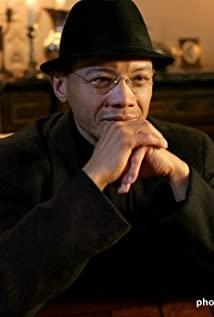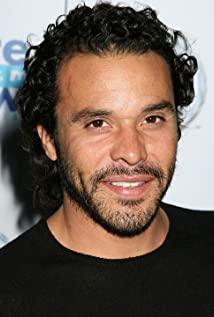Judging from my shallow viewing volume, the logic of "prison escape" movies is mostly that the characters who go to prison are innocent. They are the thief incarnation of justice or the victims of being framed by rape. On the contrary, the decent images of the warden and the police in a normal society have been "masked" into abusers, and have become obstacles to others' pursuit of freedom.
For example, these two screenshots of mine are two images before and after. The image of normal social characters has been reversed, which has become a great confrontation between good and evil.
Highly myopic, beer belly, bald and petty warden and brave and handsome prisoners.
There is another clue that I didn't mention, that is, the role of the general's daughter.
In the previous plot, the general asked to see his daughter. At that time, the general's attitude was to go back to play chess with his grandson after going back to jail with peace of mind.
However, in the conversation and the letter written by his sons and daughters (although the content of the letter is not mentioned in the play, but can be guessed), his daughter made it clear that he was not a good parent, and even did not want to let his grandson meet him. It can also be seen from the side that the general's wife is no longer with him.
Finally he finished reading the letter, took the photo of his grandson in his pocket, and went out to resist.
Perhaps from some lofty angles, the general's resistance and his final determination to raise the flag can be seen from the perspective of an ordinary old man abandoned by his family. The hope of his future life is gone, just like the voice of his comrades who supported him on the battlefield.
Now without the support and hope of his family, he chose to end his life in a "strong" way.
View more about The Last Castle reviews










